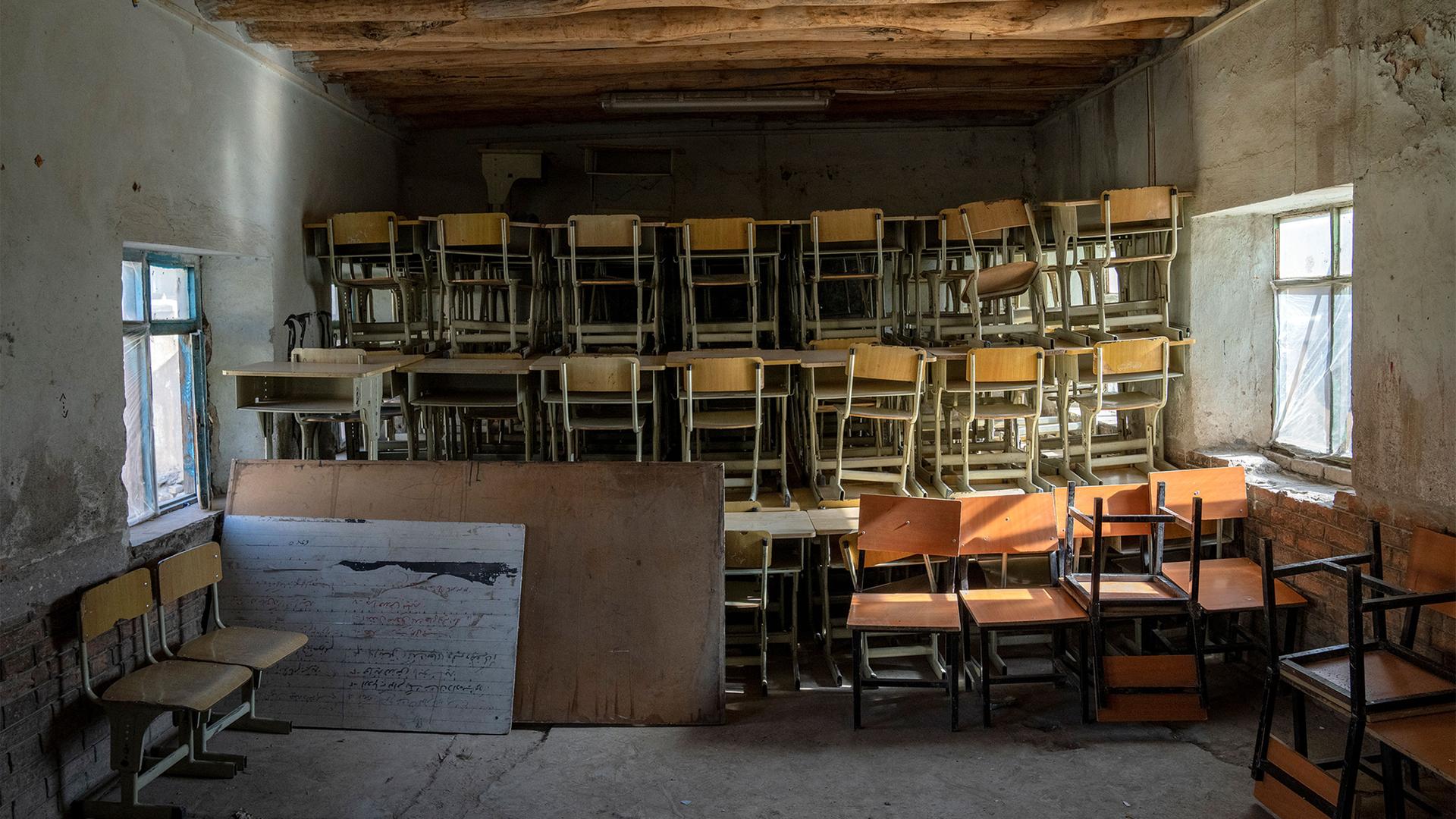Since the Taliban imposed a ban on girls’ education in Afghanistan, Ismail Mashal had used every opportunity to criticize their rule.
Last December, during an interview on a live TV program, Mashal railed against the ban, then held up his own degree and tore it into pieces.
“I can’t accept this education if my sister, my mother, can’t study,” he said, visibly upset.
Since the Taliban regained power in Afghanistan a year and a half ago, they have prohibited girls’ education beyond the sixth grade. They have also limited the jobs women can have and the public places they can go.
Human rights experts say that, besides the restrictions on women, in recent months, the group has unleashed a new wave of arrests and intimidation campaigns against its critics.
Ismail Mashal’s activism didn’t stop with the TV interview, though.
Earlier this month, he was out on the streets of the capital Kabul, pushing a cart on which he had piled dozens of books from his own library.
In a Facebook post, he said he had resigned from his teaching jobs and was going around the city distributing free books.
“My hope is that one day the doors of schools and universities reopen to Afghan women and girls.”
“My hope is that one day the doors of schools and universities reopen to Afghan women and girls,” he said.
Mashal’s project was short-lived, however. That same day, Taliban gunmen surrounded him and took him away.
His whereabouts remain unknown.
“This was all his intention to raise his voice and [not] make this to become a normal thing in Afghanistan — girls not being allowed in universities or [getting an] education,” said Natiq Malikzada, a friend of Mashal who spoke with him two days before his arrest.
“He told me that the Taliban [came] several times to his house and told him that he should stop,” he added.
Worried about Mashal’s safety, Malikzada told him that it may be better for him to lay low for a while. But Mashal said he wasn’t going to stay quiet.
Last week, in a speech at the United Nations Security Council, Josep Borrell, the European Union’s foreign policy chief, described the situation in Afghanistan as “gender apartheid.”
Human rights groups like Amnesty International have also called out the Taliban’s arrests of activists and journalists.
“What we have documented at Amnesty International is this is an ongoing trend that clearly shows that the Taliban are accountable to no one,” said Samira Hamidi, the organization’s South Asia campaigner.
“This is [completely] against international human rights laws and standards and policies.”
Many of those arrested remain unknown, Hamidi said, because their families fear that speaking up would make their situations worse.
“But then of course, they try to use different approaches, and some of them eventually give up and eventually go on [the] record out of frustration and out of [having] no choice,” she added.
That is what happened in Mortaza Behboudi’s case. He is a French Afghan photographer who was arrested on Jan. 6, in Kabul.
Behboudi’s wife Aleksandra Mostovaja said she hasn’t been able to reach her husband since his arrest. Her only communication with him was a one-minute phone call on Jan 26.
Mostovaja said she could hear her husband’s jailers in the background.
“He said that I should not worry and I should tell his family he’s fine, but that’s just like Mortaza,” Mostovaja recounted.
“At the same time [in] his voice … I could hear that he was about to cry.”
Mostovaja said that at first, when her husband was detained, his family stayed quiet. They thought he would be released in a couple of days. But weeks went by and they heard nothing. Then, the Taliban accused him of being a spy.
That’s when his family decided to go public.
“For the first time in my life, I know how it feels to have a hole in my heart,” Mostovaja said, “but at the same time, [it’s] what has been making me stronger or making me be able to continue is his image.”
News of more arrests emerge daily.
Author Zakaria Osouli and women’s rights activist Nargis Sadat are the latest to have been detained. Mousa Shaheen, a popular singer, has also been arrested.
Samira Hamidi of Amnesty International said officials from the US, Europe and the United Nations visit Afghanistan and meet with Taliban leaders. But those visits haven’t made much of a difference in the Taliban’s approach to human rights.
“They are engaging the Taliban and they are justifying their engagement with the Taliban as no other solution available, but unfortunately, they’ve not used any leverage to put a time-bound kind of a demand on the Taliban,” she said.
The World reached out to Taliban spokesman Soheil Shaheen about the arrests.
He responded in a WhatsApp message saying that he doesn’t know who the detainees are and why they are being held.
We want to hear your feedback so we can keep improving our website, theworld.org. Please fill out this quick survey and let us know your thoughts (your answers will be anonymous). Thanks for your time!
